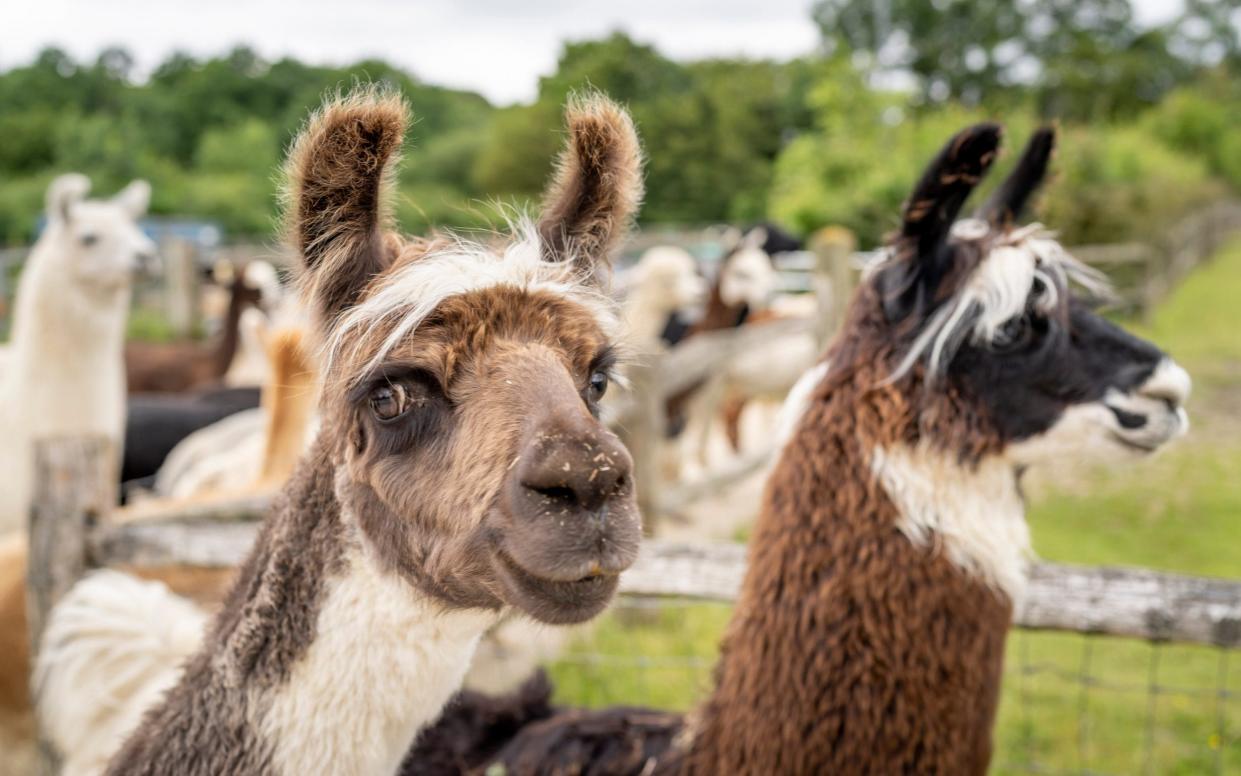M&S reverses ban on alpaca wool risking Peta activist backlash

Marks & Spencer has reversed its ban on alpaca wool, threatening to spark a row with campaigners who warn that shearing the animals causes “immense suffering”.
The retailer said it would now be allowing the use of alpaca yarn in its clothes, going back on its decision to ban the wool in 2020 following pressure from Peta, the animal rights group.
M&S at the time said an investigation by Peta had highlighted “concerns around the welfare of animals that are farmed to produce alpaca [wool]” and committed to phasing alpaca yarn “from all future product developments”.
However, on Tuesday M&S said it had now reversed the ban following the introduction of the Responsible Alpaca Standard (RAS) in supply chains. It said the RAS “gives us the confidence we need to start sourcing this fibre again”.
The RAS was launched in 2021 as a voluntary programme by industry group the Textile Exchange where alpaca farmers and ranchers can apply for certification and assessment on factors such as animal welfare and land management.
Minimum standard for alpaca fibre
M&S said the use of this certification “will be the minimum standard for all alpaca fibre in M&S products”, adding: “We value the quality of this fibre as well as the traditional know-how linked to its production.” M&S had previously used the material in its jumpers and coats. There is currently no alpaca yarn in use across its products.
Peta launched a campaign in 2020 claiming that animals at the largest privately-owned alpaca farm were being left with deep wounds from shearing.
It has led to a court case in Peru amid charges of cruelty to domestic animals.
M&S’s decision to reverse its ban is expected to draw criticism from campaigners, who have previously warned that the RAS “fails to prevent animal suffering”.
‘Humane washing’
When the standard was created, Peta claimed that it was “humane washing” which would “do nothing to stop” bad practices.
Peta has pointed to a host of “shortcomings” for the RAS, including only requiring inspections once a year.
Mimi Bekhechi, Peta’s vice president for the UK, Europe and Australia, warned the change would lead customers to “turn their backs on M&S”.
She adding: “The decision to overturn its ban on alpaca wool – which was put in place after watching Peta’s groundbreaking exposé revealing that crying alpacas, including pregnant animals, are roughly shorn and left cut up and bleeding from deep wounds for their fleece – is a slap in the face to compassionate consumers.
“If M&S wants to stay on the high street and in the good graces of today’s conscientious shoppers, it must take the high road and ban alpaca wool – and all animal-derived clothing and accessories – from its stores.
“And that’s exactly what Peta is calling on it to do.”
The Textile Exchange said it recognised the role of animal rights organisations in driving “necessary change” in the fashion industry, with the RAS introduced to address challenges over animal welfare.
A spokesman added: “The Responsible Alpaca Standard was designed to incentivise the humane treatment of animals and raise the bar on best practices across the industry... It gives confidence to claims that products come from farms that prioritise better practices.”
An update on its standards framework expected to be released in the first half of 2024.

